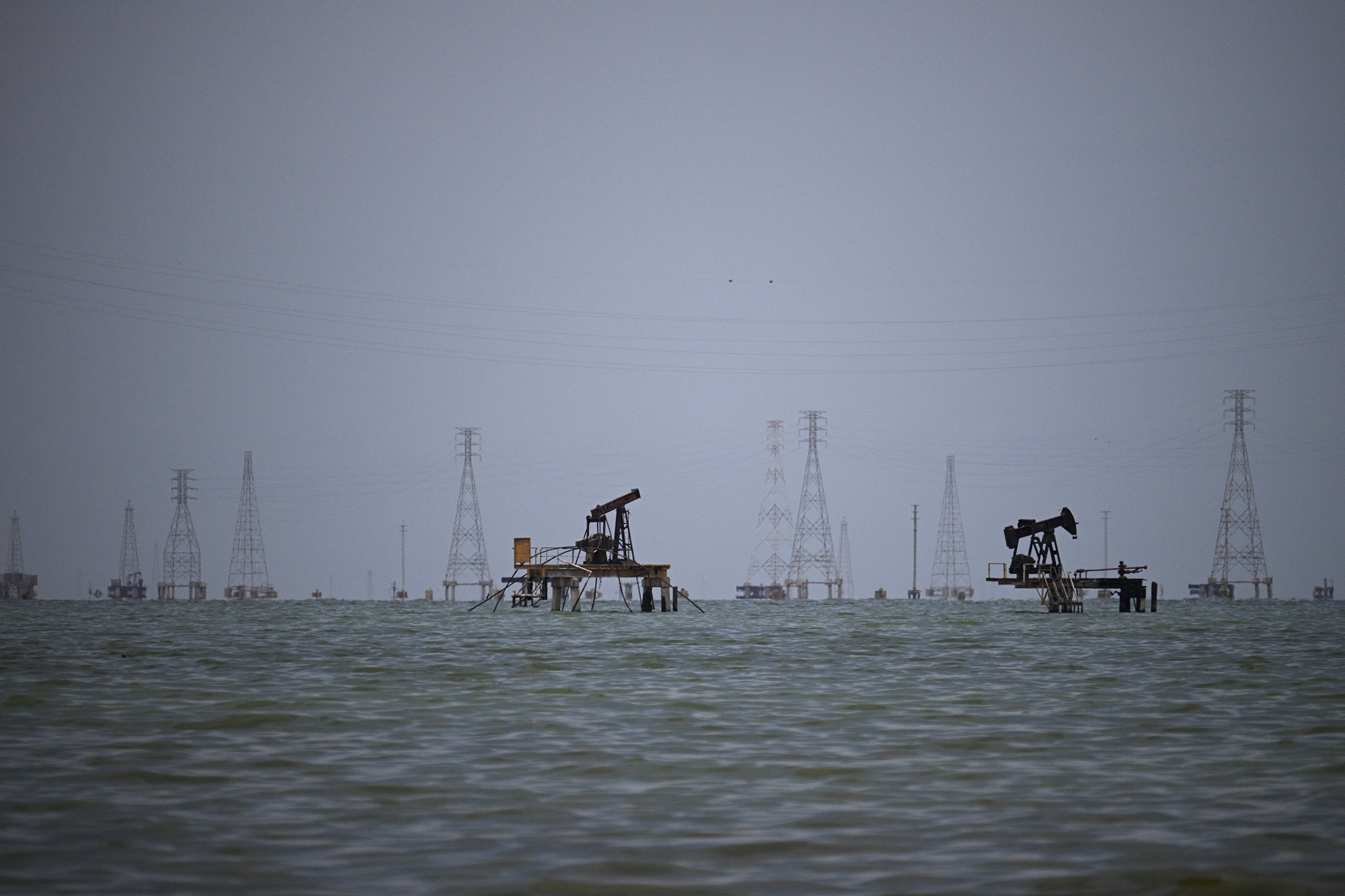The bittersweet effects for Venezuela of an oil blockade from the Middle East

What would happen in Venezuela if the conflict in the Middle East escalates and there is a blockage of oil supplies from that area and the price of crude oil increases? A few years ago, there was a sure answer to that question. Today, the analysis requires more detail.
And this is what Luis A. Pacheco, an expert in the oil sector, did during the forum “Oil Market: Economy and Geopolitics”, organized by the Venezuelan Finance Observatory (OVF). The message was clear: Venezuela does not have, “neither in the medium nor in the short term,” the capacity to respond to additional demand for crude oil in the event of a supply blockade due to conflicts in the Middle East.
The idle capacity of the oil industry is at -0.05, in a score from the International Energy Agency (IEA), in which Saudi Arabia has 3.1.
In the past, Venezuela benefited from wars that negatively impacted oil production in Arab countries. Pacheco recalled Yom Kippur, in 1973, or the fall of the Shah, five years later. But this time many things are different.
First, despite the fact that the Arab-Israeli conflict has been going on for months and the Russian invasion of Ukraine goes for the three years, the supply of crude oil has not been compromised to a large extent. Therefore, the expected increase in oil prices has not occurred.
But, if it were to happen, the Venezuelan oil industry would be left out of the group that would resolve the lack of supply.
Oil prices rise, bad for Venezuela
Pacheco, who is a mechanical engineer from the University of Zulia, with a doctorate from the Imperial College of Science and Technology of the University of London, maintains that if oil prices rise for Venezuela there will be no significant benefit.
First, and the only positive element, is that oil revenues will increase, because the country depends on that. José Guerra, moderator of the space, commented that Today the country does not depend on the production of crude oil but on its price. Pacheco confirmed it.
As an anchor, if oil prices rise, there will also be an increase in the costs of importing products and raw materials for local production. Negative point for Venezuela, which depends largely on imports.
This leads to a third element mentioned by Pacheco: the increase in the production of the same oil and other goods.
The OFAC sanctions that weigh on Venezuela remain in this panorama. In an extreme context of oil blockade from the Middle East, the United States could relax its measures against the Venezuelan industry. But, Pacheco assures that it would not imply an increase in production, although it would be a political victory for the Government.
Nor will there be a better position for the country in OPEC, the mechanism that it founded in the 70s. Something else would be needed, such as the recovery of production. Even so with an internal political change.
Nobody wants Venezuela’s oil?
A participant in the forum asked Pacheco his opinion on the idea that the United States would be interested in Venezuelan oil and would try to outmaneuver China. “They might have wanted it 25 years ago, but not today,” responded the expert, with 40 years of work in the sector. “I don’t see why they need Venezuelan oil. I also don’t think the Chinese or the Russians They are around the corner, on a ship, waiting for Venezuelan oil, because it is not happening right now. This happens because Venezuela has proven to be a country with high geopolitical risk, even for the Chinese and the Russians. The Indians have just left the Orinoco belt. That can change, of course,” he explained.
The market hopes that the blockade does not happen
That war conflicts continue to develop in the areas where the greatest oil production is located, without affecting production and supply, shows that the market is optimistic.
Pacheco, columnist and university professor, recalled that what most affects the price of oil is the fear that its supply will be interrupted. It is at that moment when the speculative futures market distorts and affects reality.
He also spoke about other geopolitical factors that would be supporting this idea, such as the policies of OPEC, the little effect of economic sanctions on Russia for its invasion of Ukraine, and the political instability in oil-producing countries, which today is dominated by Libya and Nigeria. Venezuela was in the spotlight at the beginning of the 21st century.
All of this, Pacheco insisted, has not affected the supply of crude oil, and it seems that it will not do so in the short term. Or, at least, it is what the market believes, which is the expectation.
Crude oil inventories, which are not known exactly, seem to be stable and give that positive feeling. Furthermore, the country with the greatest idle capacity, and which could increase its production in the short term, is Saudi Arabia. The nation, although it is in a conflict zone and depends on the Strait of Hormuz, would be clear about its position.
Independent journalism needs the support of its readers to continue and ensure that the uncomfortable news they don’t want you to read remains within your reach. Today, with your support, we will continue working hard for censorship-free journalism!
